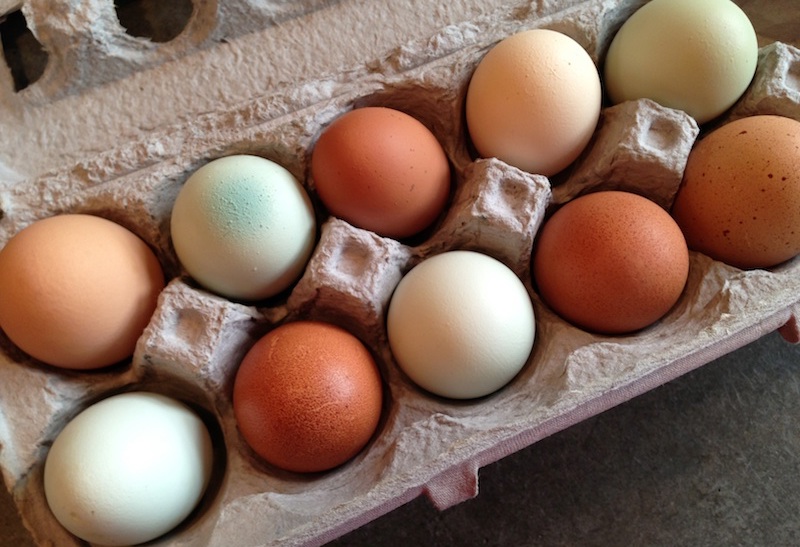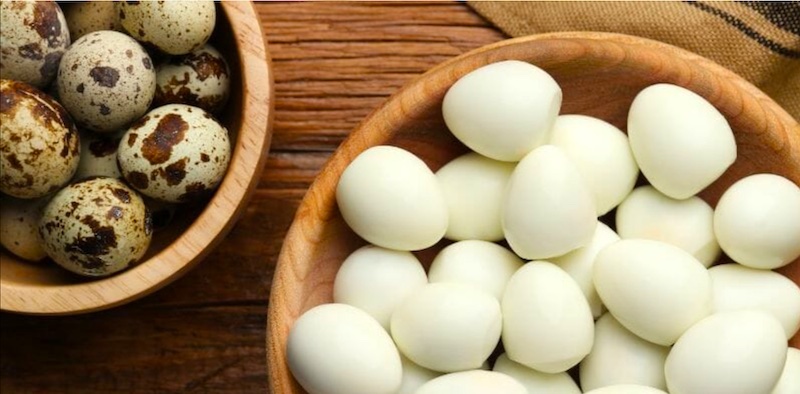
Pickled Quail Eggs? Count Me In!
In this week's Beaverton Farmers Market newsletter, manager Ginger Rapport interviewed a vendor about his favorite new snack, pickled quail eggs! Since I'm up for trying anything pickled, I thought I'd share his recipe here.
Le Petit Jardin, our microgreens grower, makes unique blends of these nutritious greens to use in your salads, brighten your sandwiches, or even use in your smoothies for an additional vitamin and nutrition boost, Michael Hager, the owner, shared with us that he discovered his new favorite thing—pickled quail eggs!
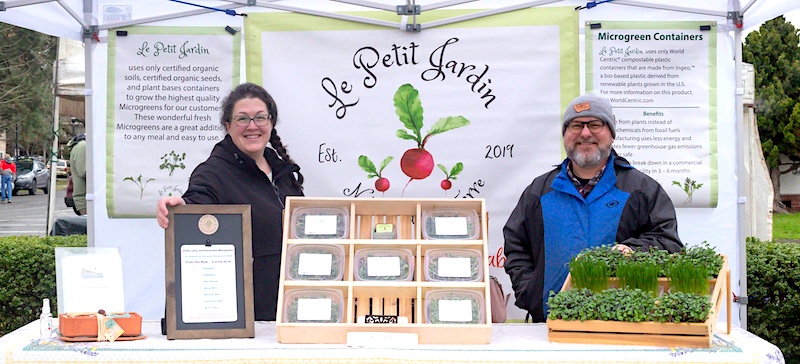
Here is what he wrote:
“As you may know, I started to keep Jumbo Coturnix quails this past summer on my small homestead. Over the past months, I was able to take five Coturnix quails and grow my flock to over 20 quails that are all laying eggs now.
Monday, I was looking at the abundance of quail eggs in the fridge and said to myself, "How can I do something different with them?" I have been making fresh eggs with them every morning. It hit me, why not make some pickled quail eggs? For best results, start this process one week ahead of time to allow the eggs to absorb the flavors of the pickling brine.
Pickled Quail Eggs
For the brine:
1 c. white vinegar or red wine vinegar
1 tsp. Kosher Salt
2-4 whole cloves
8 peppercorns, whole
1 tsp. red pepper flakes or cayenne (optional)
For the eggs:
1 dozen quail eggs at room temperature (not cold)
1 sprig of fresh dill
1 pinch Parsley fresh, chopped
1 jalapeño pepper, sliced crosswise in 1/8" rings (optional)
Bring a medium-sized pan of water to a rolling boil over high heat. Add quail eggs to the water, making sure the water covers the eggs, and set a timer for 3 1/2 minutes. Keep the water at a low boil. While the eggs cook, prepare a bowl of ice water. When the time is up, take eggs directly from the boiling water into the bowl of ice water with a slotted spoon. Cool for three minutes, then gently crack and peel the eggs.
In a small saucepan, bring vinegar to a boil. Add in the kosher salt, garlic cloves, whole cloves and peppercorns. Add additional ingredients, such as cayenne powder or red pepper flakes, if you desire. Stir to combine until the salt is fully dissolved. Remove from heat but do not allow to cool completely.
Place your sprig of fresh dill and a pinch of chopped parsley in the bottom of a one-quart Mason jar. Add jalapeños at this stage if you’ve chosen to use them. Place the peeled quail eggs in the jar on top of the dill and parsley. Pour the hot pickling brine over the eggs. Use a knife, fork, spoon, or chopstick to carefully move the eggs around to ensure there are no air bubbles in your pickling mixture. Place a lid on the jar. Store in your refrigerator for 1 week before enjoying so the eggs have time to absorb the flavors of the brine.
To serve, slice them up for salads or just eat them right out of the mason jar as a nice afternoon snack.
NOTE: Pickled quail eggs will last for up to 3 months in the refrigerator.
Check out my series on fermentation!
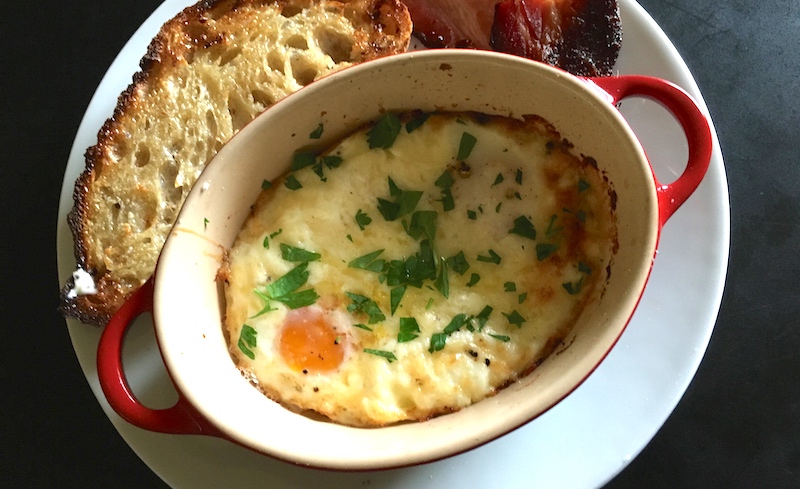
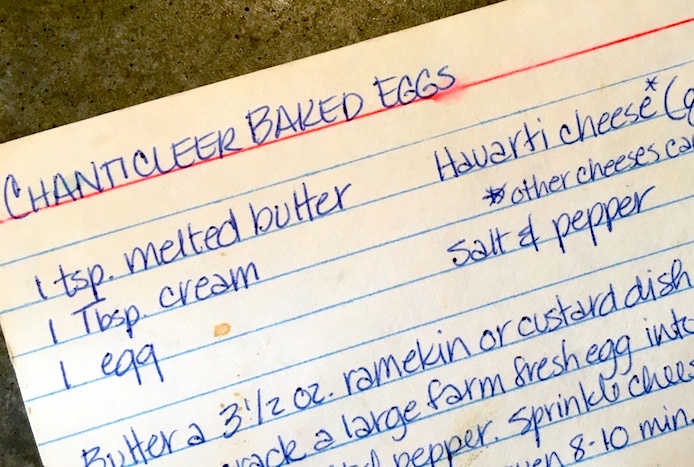 Now, a dish can burrow its way into your brain for lots of reasons—a romantic setting, great company, a few too many mimosas—but this one was alluring because of its simplicity. Just butter, eggs, cream and cheese baked to a golden finish, crispy yet creamy, the yolks still oozing.
Now, a dish can burrow its way into your brain for lots of reasons—a romantic setting, great company, a few too many mimosas—but this one was alluring because of its simplicity. Just butter, eggs, cream and cheese baked to a golden finish, crispy yet creamy, the yolks still oozing.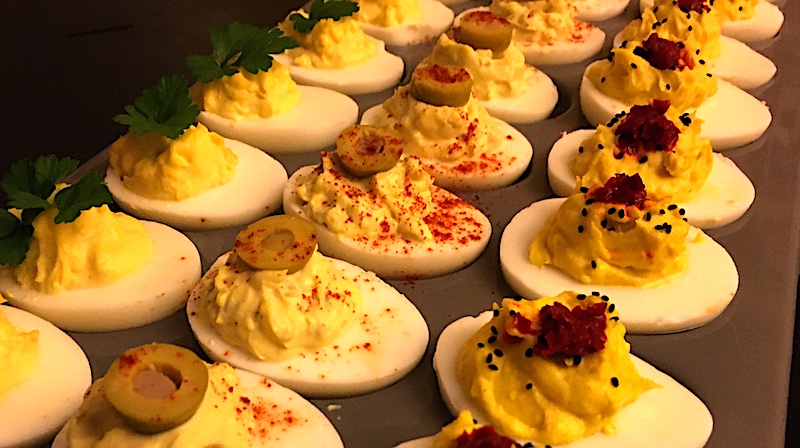
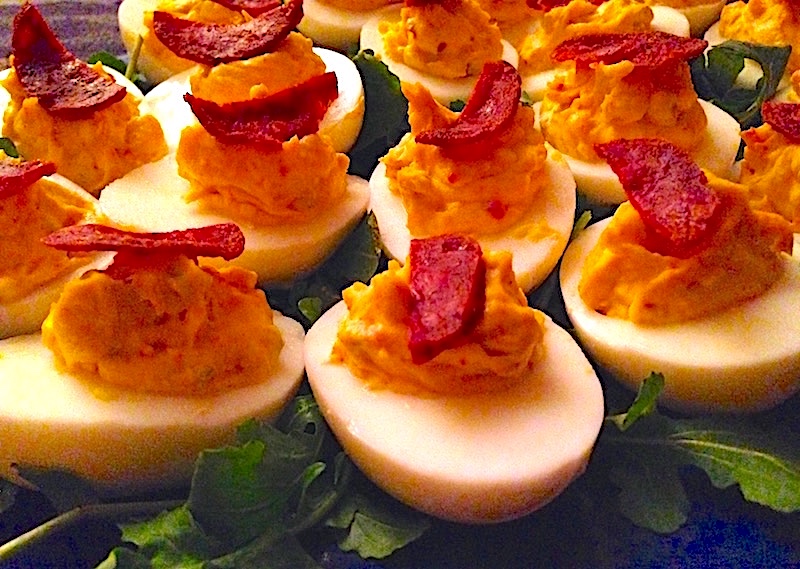 This is the time to buy the best eggs you can get, so don't settle for store-bought eggs that may be up to a month old. (And be forewarned: their extraordinary flavor and freshness might just convince you they're worth the price to use all the time.)
This is the time to buy the best eggs you can get, so don't settle for store-bought eggs that may be up to a month old. (And be forewarned: their extraordinary flavor and freshness might just convince you they're worth the price to use all the time.)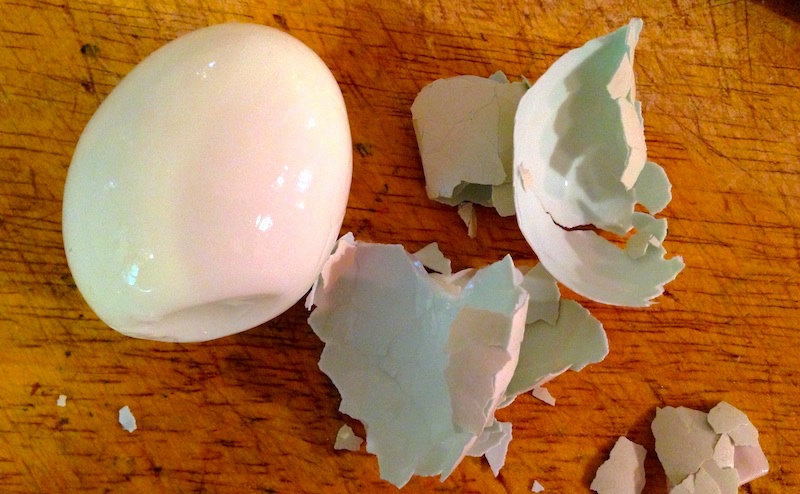
 One of the joys of using fresh eggs from pasture-raised hens is their flavor, that indescribably eggy brightness that comes from the chickens' diet of grass, bugs and minerals found in the soil around them. Their unctuous, velvety texture and brilliant deep yellow-orange color would have—and probably did—set Van Gogh's heart aflutter.
One of the joys of using fresh eggs from pasture-raised hens is their flavor, that indescribably eggy brightness that comes from the chickens' diet of grass, bugs and minerals found in the soil around them. Their unctuous, velvety texture and brilliant deep yellow-orange color would have—and probably did—set Van Gogh's heart aflutter.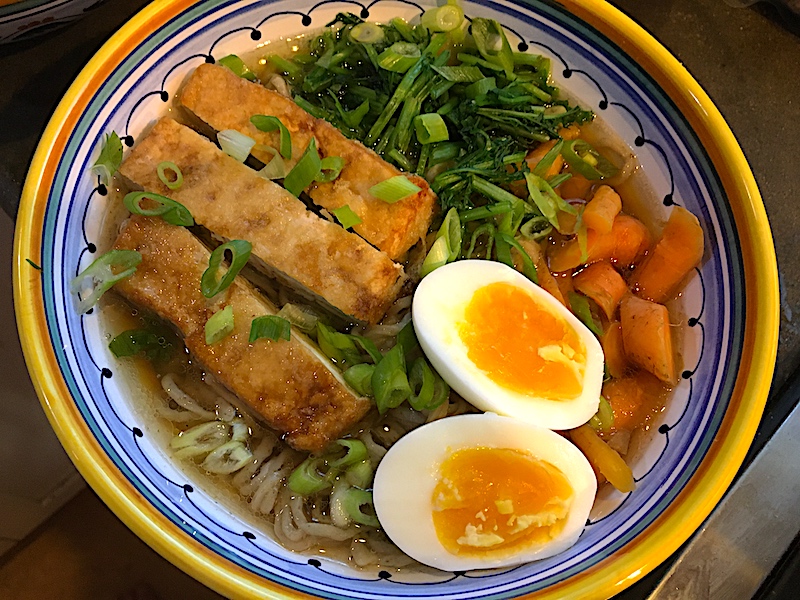 And yes, anyone who's cracked open a fresh-from-the-hen egg will notice that the white does cling to the shell much more tenaciously that its sad, store-bought sibling. That's because eggs in the grocery coolers, even those labeled as "pasture-raised," can be up to a month old when you get them home. (The above-mentioned writer even suggested buying store eggs, then keeping them in the fridge for "seven to ten days." That would mean they could be up to a month-and-a-half old. Imagine how great those would taste!)
And yes, anyone who's cracked open a fresh-from-the-hen egg will notice that the white does cling to the shell much more tenaciously that its sad, store-bought sibling. That's because eggs in the grocery coolers, even those labeled as "pasture-raised," can be up to a month old when you get them home. (The above-mentioned writer even suggested buying store eggs, then keeping them in the fridge for "seven to ten days." That would mean they could be up to a month-and-a-half old. Imagine how great those would taste!) And it's about to get a lot worse unless you act now.
And it's about to get a lot worse unless you act now.